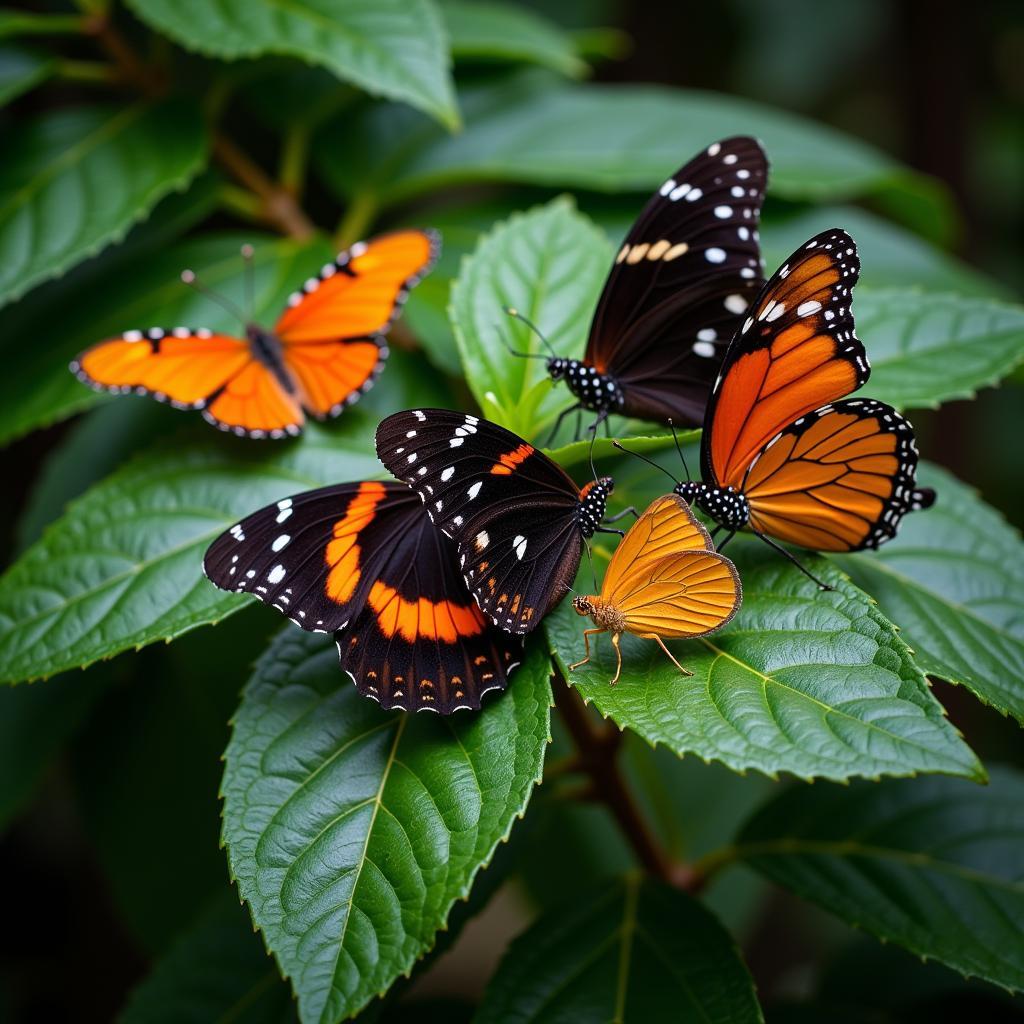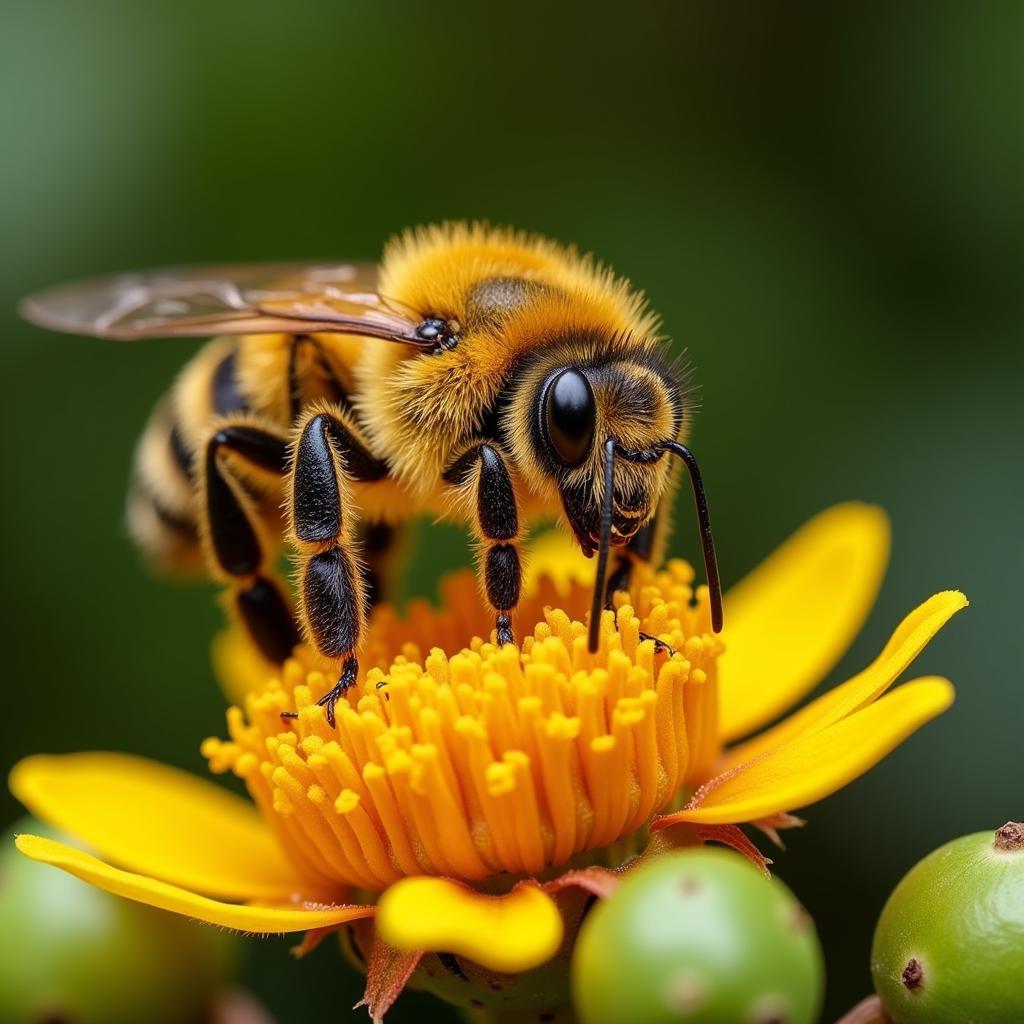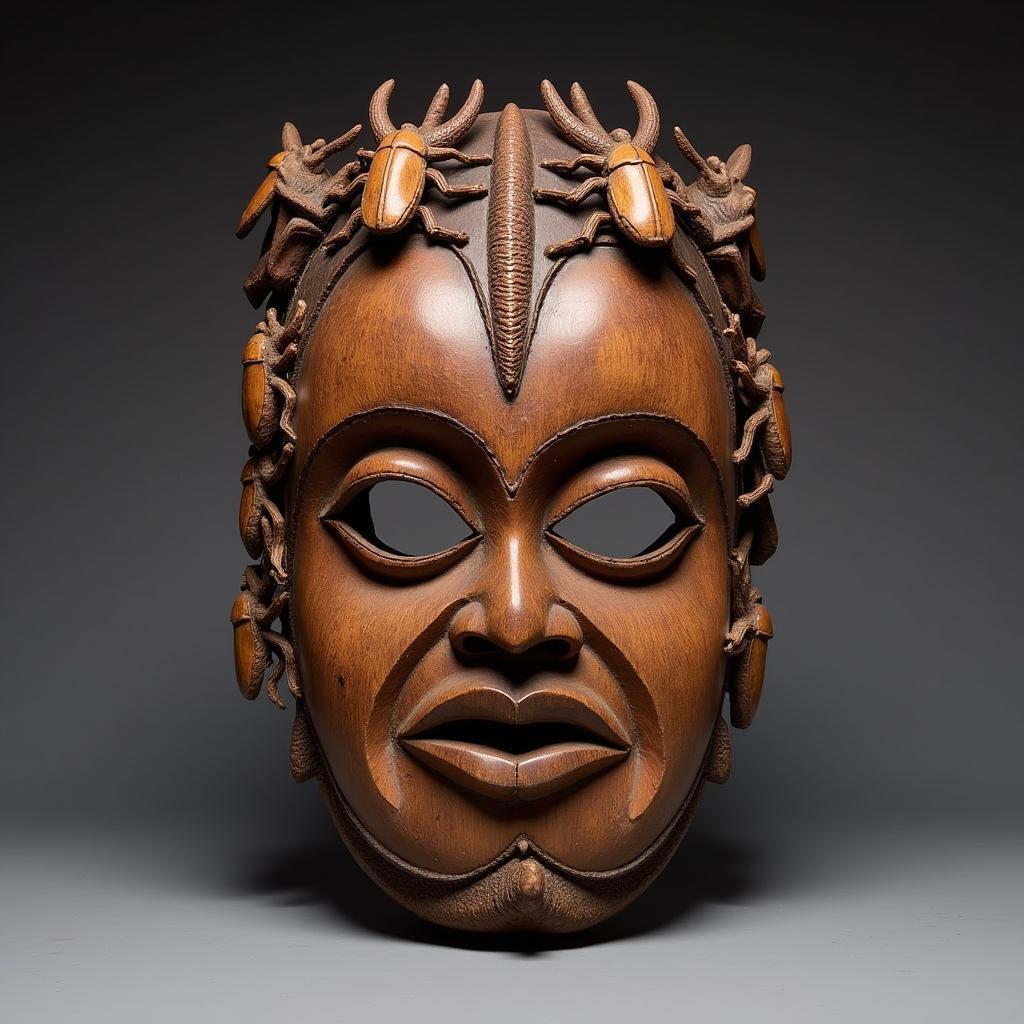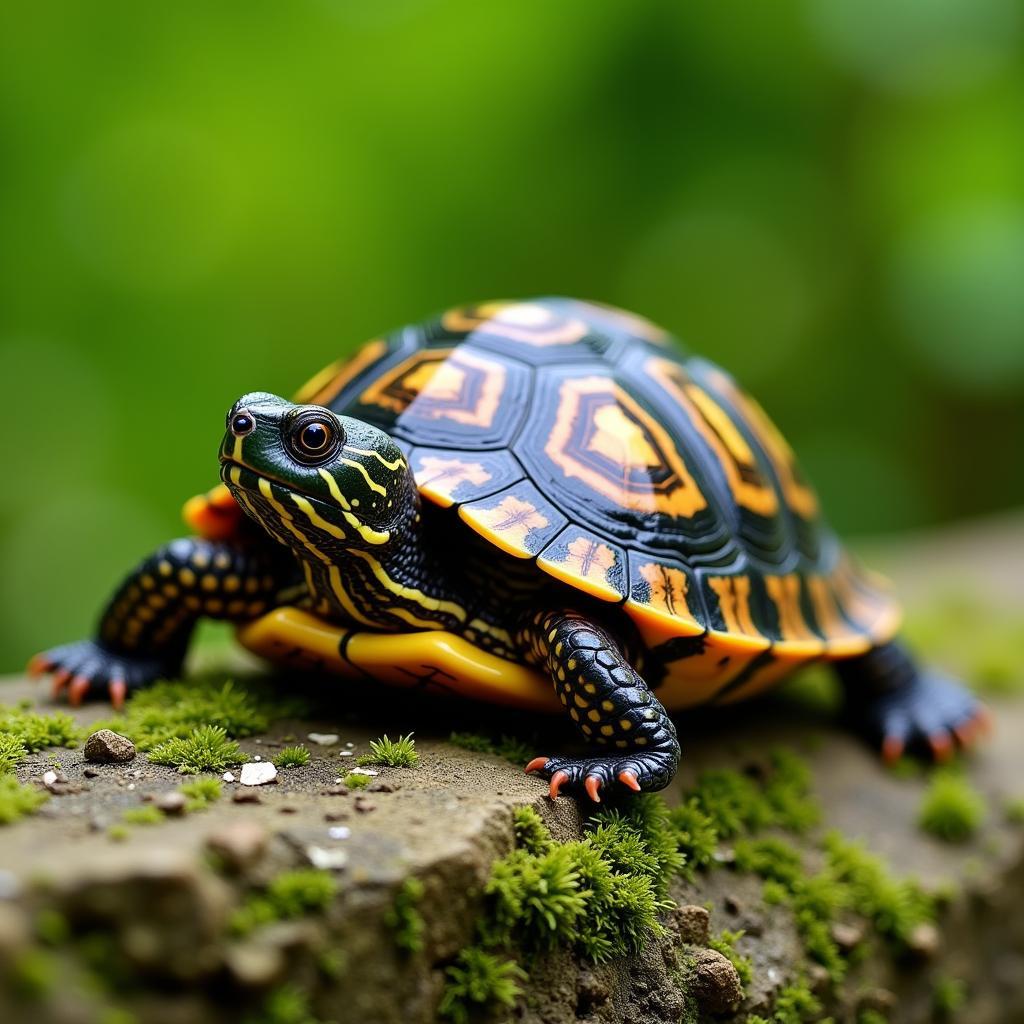Exploring the Fascinating World of African Entomology
African Entomology, the study of insects in the diverse landscapes of Africa, offers a captivating journey into a realm teeming with wonder and significance. Insects, often overlooked creatures, play critical roles in Africa’s delicate ecosystems, impacting agriculture, human health, and even cultural practices.
This article delves into the captivating world of African entomology, uncovering the hidden lives of insects and highlighting their undeniable importance on the continent.
Unveiling the Diversity of African Insects
Africa boasts an astounding array of insect life, from the iconic dung beetle to the vibrantly colored butterflies flitting through rainforests. This immense diversity stems from the continent’s varied climates, ranging from arid deserts to lush tropical rainforests, each harboring unique insect communities.
 African Rainforest Butterfly Diversity
African Rainforest Butterfly Diversity
Entomologists estimate that Africa could be home to millions of insect species, with many yet to be discovered and described. This makes African entomology a thrilling field, brimming with opportunities for groundbreaking research and discoveries.
The Ecological Significance of Insects in Africa
Insects are fundamental to the health and functioning of African ecosystems. They act as pollinators, ensuring the reproduction of countless plant species, including vital food crops.
For example, bees, with their industrious pollination efforts, are crucial for the production of coffee, a major export crop for several African countries.
 African Bee Pollinating Coffee Flower
African Bee Pollinating Coffee Flower
Furthermore, insects contribute to nutrient cycling by breaking down organic matter, enriching the soil, and supporting plant growth. They also serve as a crucial food source for various animals, including birds, reptiles, and amphibians, highlighting their role in maintaining ecological balance.
African Entomology and Human Health
The relationship between insects and human health is complex in Africa. While some insects are beneficial, others pose significant threats. Mosquitoes, for instance, transmit diseases like malaria, dengue fever, and Zika virus, posing severe public health challenges across the continent.
Understanding the ecology and behavior of these disease-carrying insects is crucial for developing effective control strategies and mitigating their impact on human populations. On the other hand, some insects, like certain species of ants and termites, are traditionally used in wound healing and other medicinal practices in various African cultures.
The Cultural Significance of Insects
Insects are deeply woven into the cultural fabric of many African societies. They feature prominently in folklore, mythology, and traditional beliefs, often symbolizing strength, resilience, or even spiritual connections.
 African Tribal Mask with Insect Motifs
African Tribal Mask with Insect Motifs
Certain insects are also consumed as a valuable source of protein in various parts of Africa. Mopane caterpillars, for instance, are a popular delicacy in Southern Africa, providing essential nutrients and contributing to food security.
The Future of African Entomology
African entomology faces numerous challenges, including limited funding, lack of infrastructure, and the impact of climate change on insect populations. However, the field also presents immense opportunities for innovation and impactful research.
New technologies, such as DNA barcoding and remote sensing, are revolutionizing our understanding of insect diversity and distribution. This knowledge is essential for developing sustainable agricultural practices, conserving biodiversity, and protecting human health in the face of environmental change.
The “African Entomology Special Issue 2019” highlighted the growing interest and advancements in this crucial field. Additionally, understanding the “African entomology impact factor” provides valuable insights into the global relevance and influence of entomological research conducted on the continent. For those interested in pursuing a career in this field, exploring “African agricultural university assistant professor agricultural entomology jobs” can open doors to rewarding opportunities.
Conclusion
African entomology offers a fascinating glimpse into a hidden world teeming with diversity, ecological significance, and cultural relevance. By understanding and appreciating the intricate lives of insects, we gain valuable insights into the delicate balance of African ecosystems and unlock innovative solutions for challenges in agriculture, human health, and beyond.
Further research and support for African entomologists are crucial to continue unraveling the mysteries of this fascinating field and harnessing the potential of insects for a sustainable future.
FAQ
1. What is the most dangerous insect in Africa?
While many insects can be harmful, the mosquito is considered the deadliest due to its role in transmitting diseases like malaria.
2. How does climate change affect African insects?
Climate change can alter insect distribution, behavior, and life cycles, potentially impacting pollination, disease transmission, and food security.
3. Are there any venomous insects in Africa?
Yes, Africa is home to venomous insects like scorpions, spiders, and certain ants, which use venom for defense or prey capture.
4. How can I contribute to insect conservation in Africa?
Supporting organizations involved in insect research and conservation, reducing pesticide use, and raising awareness about insect biodiversity are valuable contributions.
5. Where can I find more information about African insects?
Reputable online resources, scientific journals, and museums with entomological collections are excellent sources of information.
6. What is the significance of the “African Crop Science Journal impact factor”?
This impact factor reflects the journal’s influence in disseminating research findings related to African agriculture, including crucial entomological studies.
7. Can you provide examples of “African cave spider images”?
For fascinating visuals, search online for images of the diverse spider species found in African caves, showcasing their unique adaptations to these environments.
For any assistance or inquiries, please contact us at:
Phone: +255768904061
Email: [email protected]
Address: Mbarali DC Mawindi, Kangaga, Tanzania
Our dedicated customer support team is available 24/7 to assist you.


